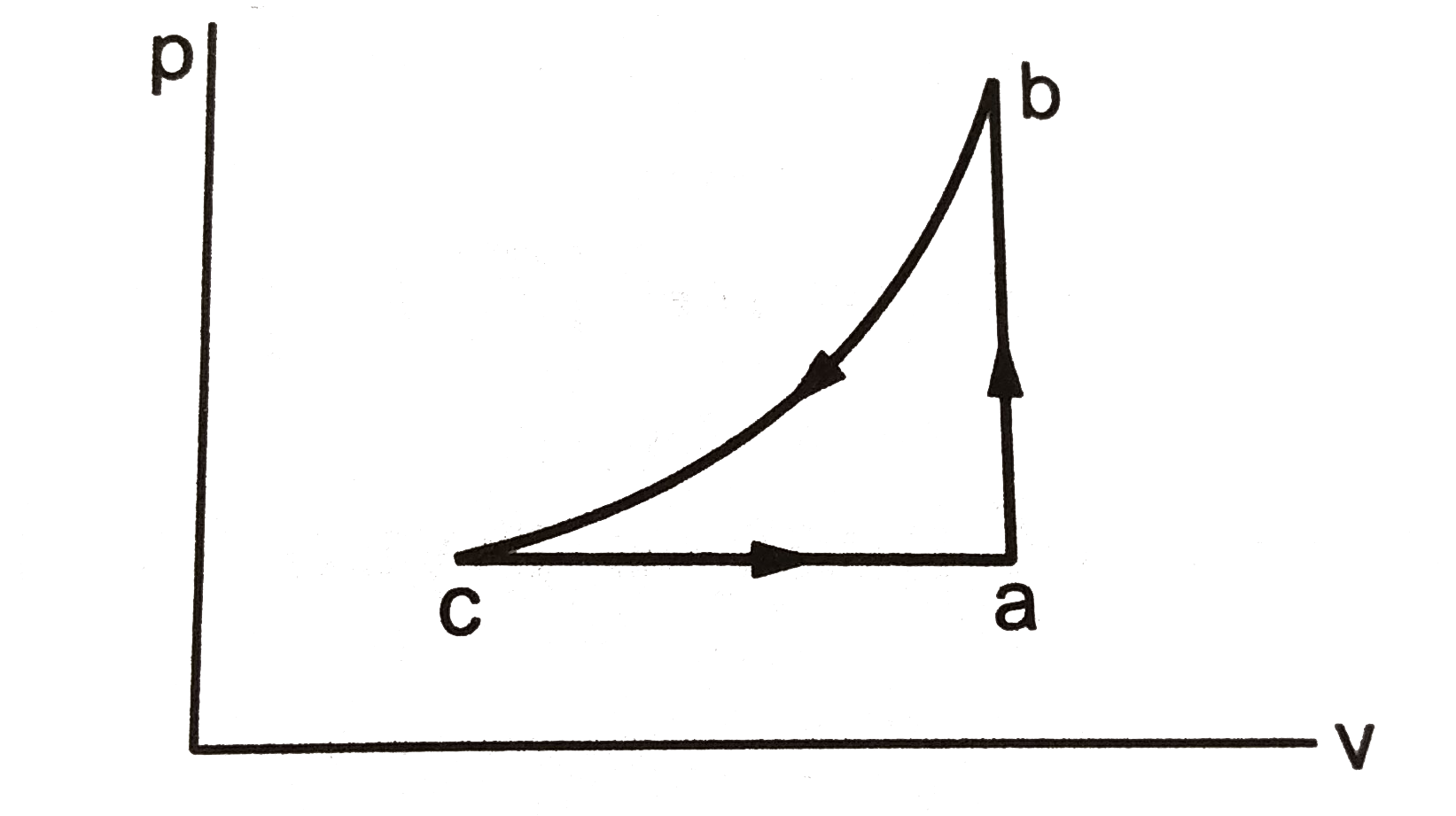The change in internal energy of two moles of a gas during adiabatic expansion is found to be -100 Joule. The work done during the process is
100 joule
−100 joule
zero
200 joule
The correct Answer is:A
To solve the problem, we need to determine the work done during the adiabatic expansion of a gas when the change in internal energy is given. Here's a step-by-step solution:
Step 1: Understand the given information
We are given:
- Change in internal energy (ΔU) = -100 Joules
- The process is adiabatic, which means there is no heat exchange (Q = 0).
Step 2: Apply the First Law of Thermodynamics
The First Law of Thermodynamics states:
ΔU=Q+W
Where:
- ΔU = Change in internal energy
- Q = Heat added to the system
- W = Work done by the system
Step 3: Substitute the known values
Since the process is adiabatic, we have:
Q=0
Thus, the equation simplifies to:
ΔU=W
Step 4: Rearranging the equation
From the equation, we can express work done (W) as:
W=ΔU
Step 5: Substitute the value of ΔU
Now, substituting the value of ΔU:
W=−100Joules
Step 6: Interpret the result
Since the work done is negative, it indicates that work is done by the system on the surroundings. However, we are often interested in the magnitude of work done:
|W|=100Joules
Final Answer
The work done during the adiabatic expansion is:
W=100Joules
---
We are given:
- Change in internal energy (ΔU) = -100 Joules
- The process is adiabatic, which means there is no heat exchange (Q = 0).
The First Law of Thermodynamics states:
ΔU=Q+W
Where:
- ΔU = Change in internal energy
- Q = Heat added to the system
- W = Work done by the system
Since the process is adiabatic, we have:
Q=0
Thus, the equation simplifies to:
ΔU=W
From the equation, we can express work done (W) as:
W=ΔU
Now, substituting the value of ΔU:
W=−100Joules
Since the work done is negative, it indicates that work is done by the system on the surroundings. However, we are often interested in the magnitude of work done:
|W|=100Joules
The work done during the adiabatic expansion is:
W=100Joules
Topper's Solved these Questions
Similar Questions
Knowledge Check
- Question 1 - Select One
During an adiabatic expansion of 2 moles of a gas the chang in internal energy was found to be equal to -100 J. The work done during the process will be equal to
AzeroB−100 jouleC200 jouleD100 joule - Question 2 - Select One
An ideal gas system undergoes an isothermal process, then the work done during the process is
AnRTln(V2V1)BnRTln(V1V2)C2nRTln(V2V1)D2nRTln(V1V2)
For an isothermal process
View SolutionThe work done by 1 mole of ideal gas during an adiabatic process is (are ) given by :
View SolutionDerive an expression for the work done during adiabatic process.
View SolutionDuring adiabatic expansion of ideal gas, which is correct ?
View SolutionA sample of an ideal gas is taken through the cyclic process abca . It absorbs 50 J of heat during the part ab, no heat during bc and rejects 70 J of heat during ca. 40 J of work is done on the gas during the part bc.(a) find the internal energy of the gas at b and c if it is 1500 J at a. (b) calculate the work done by the gas during the part ca.
 View Solution
View SolutionA sample of an ideal gas is taken through the cyclic process abca . It absorbs 50J of heat during the part ab, no heat during bc and rejects 70J of heat during ca. 40J of work is done on the gas during the part bc.
(a) Find the internal energy of the gas at b and c if it is 1500J at a.
(b) Calculate the work done by the gas during the part ca.
 View Solution
View Solution

